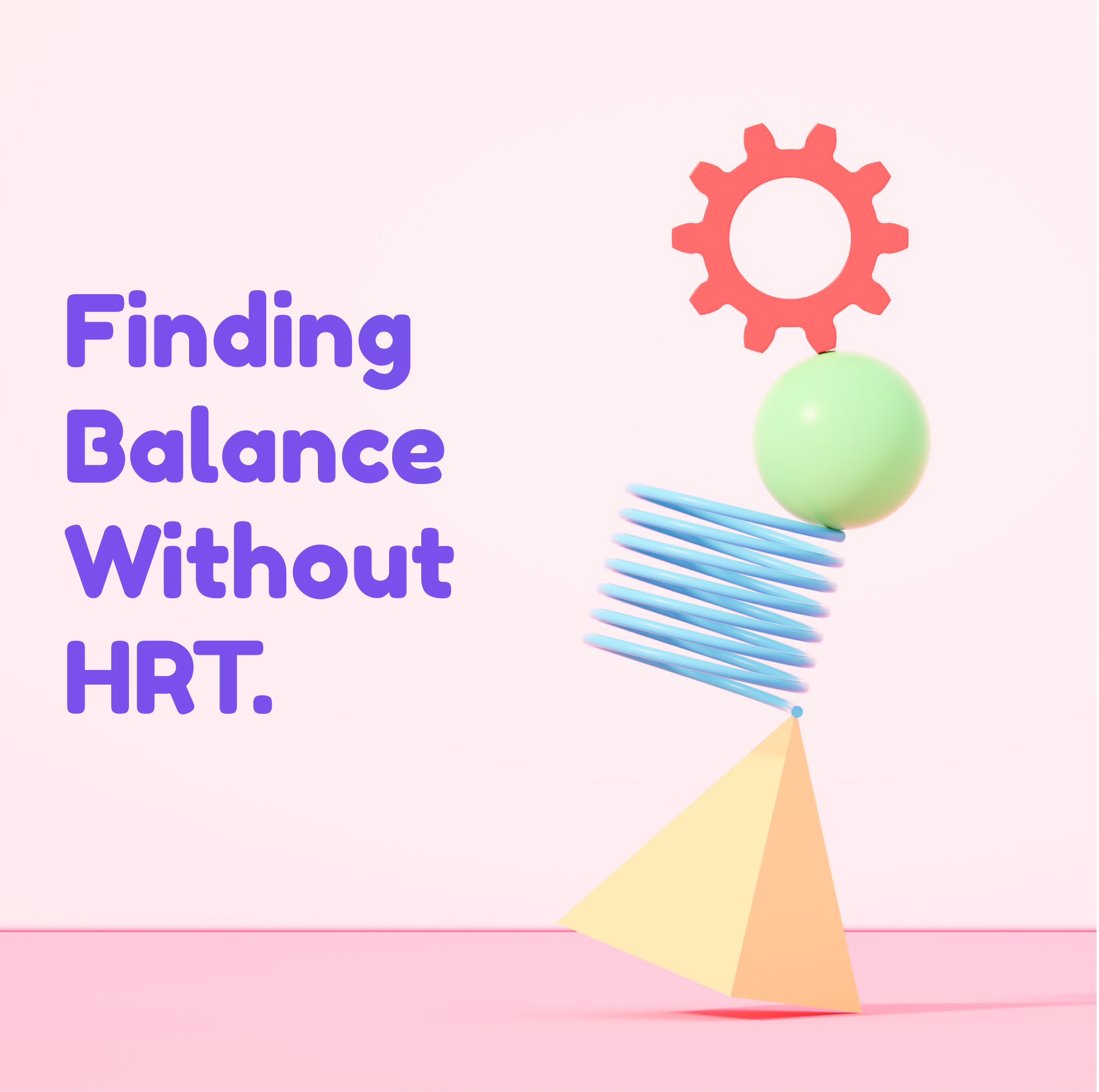
Understanding Menopause Symptoms
Menopause can feel like an unexpected plot twist in the story of your life—one that comes with a mix of surprises, challenges, and even moments of humor. Whether you’re in your early 40s or approaching the classic age of 50, the changes you experience are both natural and deeply personal. Let’s take a journey together to explore what menopause is all about, common symptoms you might face, and practical tips for managing this transition with confidence and grace.
Got questions? Ask Noor.
What Is Menopause?
Menopause marks the end of your menstrual cycle and fertility, and it happens when your ovaries gradually produce lower levels of hormones—primarily estrogen and progesterone. This natural transition isn’t sudden; it unfolds over several years and is typically divided into three stages:
Perimenopause: The transition period leading up to menopause. During these years, hormone levels fluctuate unpredictably. You might notice changes in your menstrual period—cycles can become irregular, lighter, or heavier—and experience early signs like hot flashes and mood swings.
Menopause: Officially reached when you’ve gone 12 consecutive months without a menstrual period. This stage signifies that your ovaries have largely stopped producing hormones.
Postmenopause: The years following menopause. While many menopausal symptoms may ease over time, you may still face long-term challenges, such as a higher risk of cardiovascular diseases and osteoporosis due to decreased estrogen levels.
Common Menopausal Symptoms
Understanding menopause symptoms can help you feel better prepared for the changes ahead. Every woman’s experience is unique, but some common symptoms include:
Hot Flashes and Night Sweats: Sudden feelings of warmth, often accompanied by sweating, can occur during the day or at night. These episodes may sometimes be triggered by spicy foods or even stress.
Irregular Menstrual Periods: As you transition through perimenopause, your menstrual cycle may become erratic. You might have shorter cycles one month and longer ones the next.
Vaginal Dryness: Lower estrogen levels can cause vaginal dryness and discomfort during intercourse. This symptom is common and can sometimes be managed with over-the-counter moisturizers.
Mood Changes: Fluctuating hormone levels can lead to mood swings, irritability, or even mild depression. Remember, feeling a little off is part of the transition, not a sign of something more serious.
Urinary Incontinence and Urinary Tract Infections: Changes in hormone levels can affect the tissues around the bladder, sometimes leading to episodes of urinary incontinence or an increased risk of infections.
Other Physical Changes: You might notice changes like thinning hair, weight gain (especially around the waist), and joint stiffness.
It’s important to note that while these menopausal symptoms are common, the severity and duration vary. Some women breeze through this period with minimal discomfort, while others may experience more significant challenges.
Lifestyle Adjustments and Natural Remedies
While some symptoms may feel overwhelming at first, there are plenty of natural ways to manage them—often with a mix of lifestyle changes and self-care strategies.
Diet and Exercise
Balanced Diet: Eating a nutritious diet can help stabilize your hormone levels. Focus on a diet rich in fruits, vegetables, high quality proteins, and healthy fats. Minimize refined carbohydrates like white flours and sugar. Calcium and vitamin D are particularly important for bone health, reducing the risk of osteoporosis.
Avoiding Triggers: Spicy foods, caffeine, and alcohol may exacerbate hot flashes and night sweats. Keeping a food diary can help you identify and avoid personal triggers.
Regular Exercise: Physical activity not only boosts mood and energy levels but also helps maintain a healthy weight. Aim for a mix of cardiovascular exercises, strength training, and flexibility workouts. This can be especially helpful as weight gain can be a common issue during menopause.
Stress Management and Sleep
Mindfulness and Relaxation Techniques: Practices like yoga, meditation, or simple deep-breathing exercises can help manage stress and improve sleep quality.
Sleep Hygiene: Keeping your bedroom cool, dark, and quiet can promote better sleep. Consider using a fan or lightweight bedding to manage night sweats.
Social Connections: Sharing your experiences with friends or support groups can offer both comfort and practical advice. Remember, you’re not alone on this journey.
Medical Treatments and Professional Guidance
For some, lifestyle changes might not fully alleviate menopausal symptoms. Medical treatments can be a helpful addition to your self-care routine. It’s essential to discuss these options with your healthcare provider to find a solution that fits your personal needs and risk factors.
Hormone Therapy
Hormone Replacement Therapy (HRT): HRT can help balance hormone levels and relieve symptoms like hot flashes, mood swings, vaginal dryness, insomnia, foggy headedness, and loss of libido. This therapy is particularly beneficial for those experiencing severe symptoms or those at a higher risk of osteoporosis and cardiovascular diseases.
Risks and Benefits: While hormone therapy has its advantages, it may not be suitable for everyone—especially if you have a history of certain health conditions. Your doctor will help you weigh the risks and benefits based on factors like age, overall health, and personal preferences. Treating within the ‘optimal window’ within 10 years of onset of menopause is arguably ideal, while even older subgroups of patients can be treated effectively and safely with proper exploration and management of individual risks and benefits of therapy.
Alternative Treatments
Non-hormonal medications are also available and may include certain antidepressants or other prescriptions designed to reduce specific symptoms.
Other Considerations
Birth Control Options: If you’re in the perimenopause stage and still have an irregular menstrual period or concerning untoward symptoms, you might benefit from specific forms of HRT or birth control to regulate your cycle until you’re officially in menopause.
Understanding Risk Factors: Conditions such as premature menopause or a diagnosis of primary ovarian insufficiency (when menopause occurs before age 40) require special attention. Additionally, knowing your family history can help assess risk factors for issues like cardiovascular diseases.
Practical Daily Tips
Managing menopausal symptoms can be more straightforward with a few simple, everyday strategies. Here are some actionable tips to help you feel more in control:
Dress in Layers: Wearing layers makes it easier to adjust when a hot flash strikes. A light cardigan or shawl can be a lifesaver on unexpectedly warm days.
Stay Hydrated: Keep a bottle of cold water handy—sipping water during a hot flash can be both refreshing and calming.
Keep a Symptom Diary: Tracking your symptoms can help you identify patterns and triggers. Over time, you may notice that certain activities or foods consistently affect you, allowing you to make informed lifestyle adjustments.
Prioritize Self-Care: Whether it’s taking a warm bath, reading a book, or simply enjoying a quiet cup of tea, make time for activities that soothe your mind and body.
Embracing the Journey
Menopause is not just a series of physical changes—it’s also a significant emotional and social transition. It’s normal to feel a range of emotions, from relief at no longer worrying about menstrual cycles to frustration over unpredictable mood swings or sleep disruptions. However, with the right tools and mindset, this period of life can also be a time of renewed self-discovery and empowerment.
Consider menopause as a natural evolution—a signal that your body is entering a new phase – and yet one that you shouldn’t have to suffer through. Just as nature adapts and flourishes through the changing seasons, you too can find beauty and strength in the transformation. By staying informed, seeking support when needed, and embracing healthy habits, you can navigate this transition with confidence and thrive.
In Conclusion
Understanding menopause symptoms is key to managing and embracing this inevitable phase of life. From hot flashes and night sweats to mood changes and urinary or sexual concerns, the spectrum of menopausal symptoms is broad—but so are the strategies available to address them. Whether through lifestyle adjustments, natural remedies, or medical treatments like (bioidentical) hormone therapy, every step you take is a move toward a healthier, happier you.
Remember, menopause is a universal experience for many women. By sharing experiences, supporting each other, and seeking professional advice when necessary, we can transform what might seem like a daunting transition into a journey of empowerment and growth.
Embrace the changes, keep your sense of humor intact, and make this next phase of life a glorious one. Your body has a remarkable ability to adapt, and with the right mindset and, when needed, individualized, expert clinical support, you can turn menopause into an opportunity for self-care, resilience, and renewed vitality.



